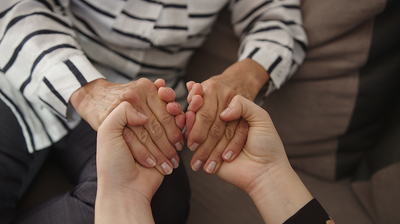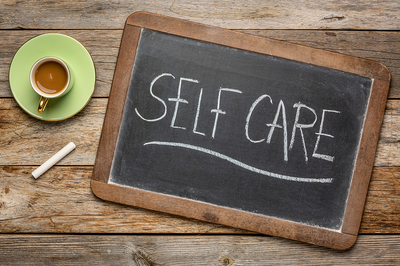
Choose compassion over condemnation when helping an addict who is going through a relapse.
When someone you love suffers a relapse and begins abusing drugs or alcohol again after a period of sobriety, it’s natural to feel a range of emotions—from disappointment to hurt to fear to anger. Regardless of your own conflicted emotions, your support during this difficult time may be critical to surmounting this setback. Here’s a closer look at some things you can do to be there for your loved one while also caring for yourself and your own needs.
Lead with Compassion and Encouragement
In most cases, no one is harder on an addict who has relapsed than the addict themselves. The last thing your loved one needs from you is condemnation. Not only will this fail to solve the problem, but it may only push your loved one further away. Now is the time for compassion, not condemnation. Expressions of affection, concern, care, and love are the best ways to support someone who is struggling with addiction relapse.
Another way to show compassion? Demonstrate your understanding of the process, and remind your loved one of it, too. Relapses are part of an addict’s journey, and setbacks can be viewed as learning opportunities. Relapsed addicts often beat themselves up for their stumbles; a gentle reminder that they can use and learn from the experience can go a long way.
People in relapse are often plagued by a loss of confidence. After all, they were moving in the direction of their goals prior to relapsing. This may lead them to conclude that sobriety is simply not possible for them. In addition to conveying your love, it’s equally important to demonstrate something else: your belief in your loved one and their ability to overcome their drug problems. One way to help boost an addict’s failing confidence, meanwhile? Share examples from the past which demonstrate their strength, determination, and ability to overcome obstacles.
Ask What They Need—and Listen to the Answer
All of us have the best intentions, but the best intentions don’t always translate to helpfulness—especially when they’re misguided. It’s easy to make assumptions about what addicts need during relapse. You may even assume that you know exactly how to solve their problems. Unfortunately, you don’t, and assuming that you do can create misunderstandings and bad feelings.
The best way to know what someone wants or needs from you? Ask them directly. Answers may vary from accompanying them to a doctor’s appointment to researching area treatment programs. In addition to showing your interest in being supportive, it also demonstrates respect—which will be appreciated and valued by your loved one. Just remember, your ultimate level of involvement is determined by you. If you’re unable or unwilling to provide a certain type of support, it’s more than okay to set boundaries and stick with them. This falls under the category of self-care, and it’s as important for the people who love and care for addicts in recovery as it is for the addicts themselves.

Relapse doesn’t just impact addicts, but also the people who love them. Practicing self-care can help you stay healthy amidst the turmoil.
Reinforce the Importance of Personal Responsibility
Practicing compassion and being supportive don’t mean looking the other way. Nor do these things mean taking over and handling someone else’s problems so they don’t have to. Addiction recovery relies heavily on consequences and personal responsibility. Friends and family members should offer their support while also encouraging their loved ones to face up to their problems and own them.
In many cases, this will mean working through what triggered the relapse—often through therapy. A trusted counselor can help an addict identify the factors that led to the relapse in order to implement coping mechanisms to help them avoid repeating the cycle.
Earlier, we touched on the importance of self-care for family and friends of addicts who relapse. This can be a devastating situation, and maintaining your own healthy state of mind is important. While supporting your loved one, be sure to make time to attend to your own mental and physical health during this vulnerable time.
In addition to receiving the support of friends and family members, finding the right addiction treatment program for an individual can be vital to their achieving sobriety. Leading rehabilitation center Harris House has been providing targeted substance abuse treatment programs in the St. Louis area for more than 50 years. Call us today to learn about admissions.







